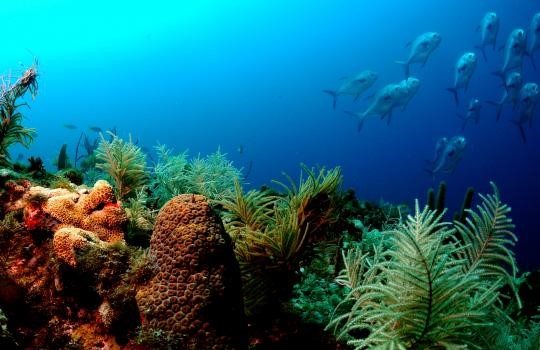Why The Ocean Matters ??More Than We Realize??

Ocean Advocate Says Those Watery Depths Hold Solutions To Earth???s Most Alarming Challenges
At a time when the world faces a multitude of potential calamities ??? ranging from climate change to a struggling oil industry to rapid population growth ??? the solution could be all around us.
Water, the world???s most valuable element, is the key ingredient to solving Earth???s most vexing problems, says Peter Neill, director of the World Ocean Observatory
and author of ???The Once and Future Ocean: Notes Toward a New Hydraulic Society.???
It???s urgent that we stop lamenting our current condition and start focusing on doing something about it, he says.
???It???s past time that we look to creating a hydraulic society, organizing our social, financial and political order around water in all its forms, places and uses,??? Neill says. ???The old paradigm of unlimited growth based on consumption, driven by fossil fuels, is exhausted and on the verge of collapse.
???We see it all around us ??? in international conflict and migration, the volatility of the world economy and employment, and at home where the decline underlies so much of what concerns us.???
He says Earth???s population ??? at 7.4 billion and counting ??? is putting extraordinary demands on the planet???s resources, which means it???s crucial that the world???s leaders and its citizens need to look to the ocean and the water cycle as vital resources that must be protected. Neill offers these reasons why that precious water holds the solution to humankind???s survival:
- Water is everywhere and is essential for life. Water covers 70 percent of the Earth. It exists in the ocean, in the atmosphere, on and in the Earth and even in the human body, Neill says. ???Without it, regardless of how rich or poor we are, what economic class we???re from, or the color of our skin, we die,??? he says.??
- The ocean contains a wealth of resources. Food is the obvious one, as evidenced by seafood restaurants that play a prominent role in the dining experience in most cities. But there???s plenty more, Neill says. Salt water can be converted to fresh water, providing a potential solution to droughts like the one now confounding California. ???California has made enormous changes in their water habits because they had to,??? Neill says. The ocean???s water also can be harnessed as an energy source, giving us an alternative method for producing electricity and allowing us to eliminate our dependence on fossil fuels. The ocean even holds possible cures for diseases, Neill says. ???It???s also a place for recreation and personal renewal that, if treated with a respect that we haven???t given the land, will sustain us for generations,??? he says.??
- The ocean helps drive the economy. Globalization can be traced to the first time someone boarded a boat and sailed off with goods to trade with people in some far off land, Neill says. Even in an age of air travel, the ocean remains the major player when it comes to transportation of goods. Roughly 90 percent of the world???s goods are transported by sea.
Neill worries that, as nations, communities and individuals, we will be too slow to recognize the ocean as our refuge from the multiple problems troubling the planet, and as the organizing principle around which our lives need to revolve.
?????The threats are real and the consequences devastating of continuing forward using the same systems and tools,??? Neill says. ???We can easily avoid catastrophe by using our imagination and the technologies that are available.???
Inevitably, he says, the ocean is where we must go for fresh water, food, energy, health, political stability, community development and personal renaissance.
???With another 2 billion people expected to be added to the world population by mid-century, with the exhaustion of the land, with the effects of climate change and extreme weather already evident, we must look for answers,??? Neill says. ???Where can we find them? In the ocean. We have no choice.???
About Peter Neill
Peter Neill is founder and director of the World Ocean Observatory (W2O)
a web-based place of exchange for information and education about the ocean. W2O aggregates global ocean organizations and resources, produces audio-visual materials and provides additional proactive products to aquariums, science centers, educational institutions, governmental and non-governmental organizations, and individuals to build public awareness. Neill previously served 20 years (1985-2005) as President of the South Street Seaport Museum, New York, and has held other positions throughout his career. He is the author of several books, including his latest, ???The Once and Future Ocean: Notes Toward a New Hydraulic Society.???
